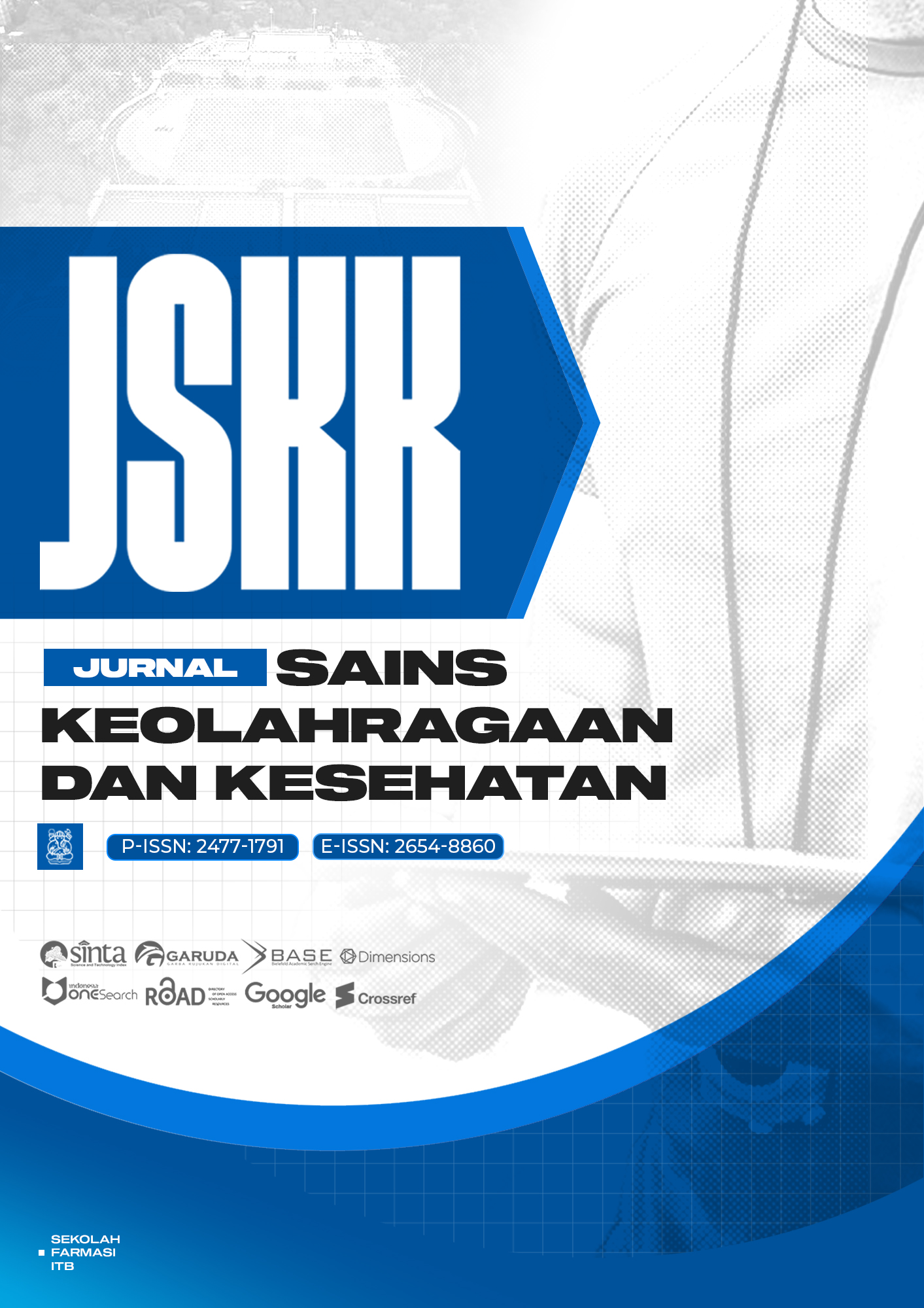The Relationship between Self-Efficacy and Goal setting in Student Sepak Takraw Athletes in Indonesia
DOI:
https://doi.org/10.5614/jskk.2025.10.1.4Abstract
Self-efficacy and goal setting were psychological factors that influenced athletes in improving sports performance. This study aimed to determine the relationship between self-efficacy and goal setting in student Sepak Takraw athletes in Indonesia. The instruments used were the Athlete Self-Efficacy Scale (ASES) (Koc?ak, 2020) and the Self-Audit Questionnaire for Goal Setting (Wilson & Dobson, 2008). Data collection was carried out using the convenience sampling technique. The study involved 156 Sepak Takraw athletes aged 12-18 years. Descriptive statistical analysis was used to describe the levels of self-efficacy and goal setting among Sepak Takraw athletes, while Spearman correlation analysis was conducted to examine the relationship between the two variables. The results indicated that 66.03% of athletes had a moderate level of self-efficacy, while goal setting was also categorized as moderate, with a percentage of 75.64%. The relationship between self-efficacy and goal setting showed r = 0.638 (p < 0.001), indicating a significant relationship with a strong correlation between these two variables in student Sepak Takraw athletes in Indonesia. The findings of this study can be applied in training programs by optimizing self-efficacy and goal setting, such as implementing the SMART method (Specific, Measurable, Achievable, Relevant, Time-bound) as a strategy to enhance athlete performance.
Downloads
Published
How to Cite
Issue
Section
License
Copyright (c) 2025 Fadia Tasyafa, Dianti Endang Kusumawardani

This work is licensed under a Creative Commons Attribution-ShareAlike 4.0 International License.
This is an open-access article distributed under the terms of the Creative Commons Attribution-ShareAlike 4.0 International License which permits unrestricted use, distribution, and reproduction in any medium. Copyrights of all materials published in JSKK: Jurnal Sains Keolahragaan dan Kesehatan are freely available without charge to users or / institution. Users are allowed to read, download, copy, distribute, search, or link to full-text articles in this journal without asking by giving appropriate credit, provide a link to the license, and indicate if changes were made. All of the remix, transform, or build upon the material must distribute the contributions under the same license as the original.











